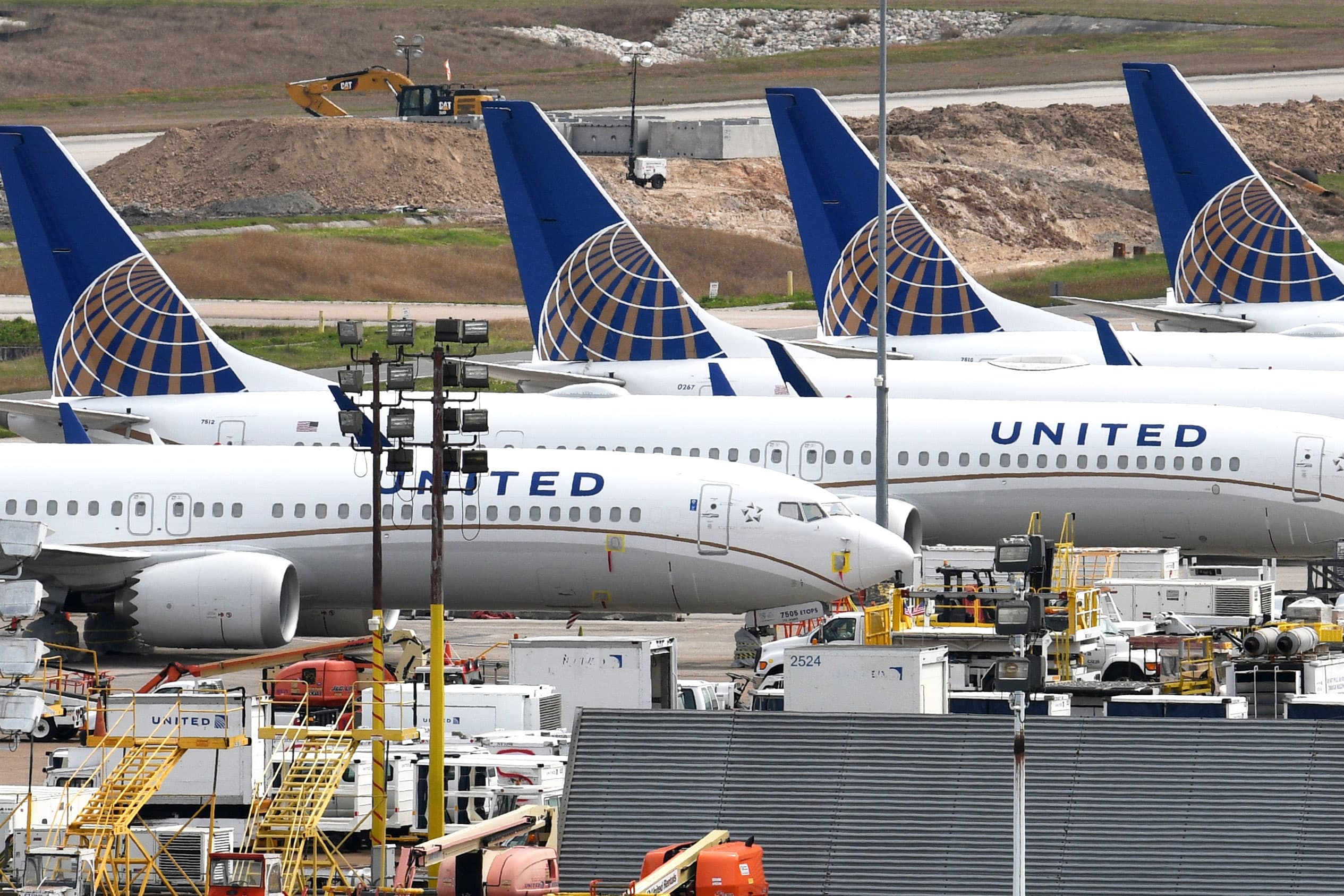
United Airlines is pulling the Boeing 737 MAX from its schedule through June 4, a date that is two months later than when other U.S. airlines plan to resume flights of the troubled planes.
By pushing the return of the MAX into June, United raises the question of whether U.S. carriers will have the Max in their fleets by the start of the summer travel season, the busiest period of the year for airlines.
Just last month, United said it would target bringing the Max back in early March. So why is it moving back that date another three months? Mainly because the carrier wants to give passengers more certainty when they are booking tickets for trips this spring and summer. In announcing the move, United said, "we'll continue to take extraordinary steps to protect our customers' travel plans."
In the last week, American Airlines and Southwest Airlines both pushed their respective target dates for resuming 737 MAX flights into early April. If the current schedules hold, the total number of MAX cancellations since it was grounded last March will be just over 146,000 flights.
Last week, the FAA Administrator Steve Dickson told CNBC his agency will not recertify the 737 MAX in 2019, dashing the hopes of Boeing executives who targeted FAA approval this year.
"There are about 10 or 11 milestones left to complete," Dickson told CNBC. "We're in the portion of the process right now where we're looking at the software – the validation of how the software was developed. That will take some time."
One day after that interview, Dickson met with Boeing CEO Dennis Muilenburg in Washington, D.C., and told him the agency has no timeline for recertifying the MAX. That news prompted Boeing to announce it will temporarily halt 737 MAX production in January.
The ripple effects of the MAX production pause are being felt around the world where suppliers and airlines are reassessing their plans.
Boeing supplier Spirit AeroSystems has announced it will suspend production of its 737 Max starting Jan. 1. In a news release announcing the decision, the company said, "Because revenue from 737 aircraft components represents more than 50 percent of Spirit's annual revenue, this suspension will have an adverse impact on Spirit's business, financial condition, results of operations, and cash flows."
Boeing Co. 737 fuselage sections sit on the assembly floor at Spirit AeroSystems in Wichita, Kansas.
Daniel Acker | Bloomberg | Getty Images
Over the last eight months, even as Boeing trimmed its 737 Max production to 42 planes per month, Spirit continued building 52 fuselages each month. The company now has 100 finished fuselages sitting on a tarmac outside its plant in Wichita, Kansas, where about 13,500 people are employed.
The 737 Max jetliner was grounded in March following two fatal crashes of the aircraft. The crashes, which occurred within five months of each other, resulted in 346 fatalities.
Boeing shares, which have a market value of more than $185 billion, have gained about 2% since the start of the year. Meanwhile, Spirit AeroSystems shares were down less than 1% in trading Friday. The stock has a market cap of neary $8 billion.
https://news.google.com/__i/rss/rd/articles/CBMiXGh0dHBzOi8vd3d3LmNuYmMuY29tLzIwMTkvMTIvMjAvdW5pdGVkLXB1bGxzLTczNy1tYXgtZnJvbS1pdHMtc2NoZWR1bGUtdW50aWwtZWFybHktanVuZS5odG1s0gFgaHR0cHM6Ly93d3cuY25iYy5jb20vYW1wLzIwMTkvMTIvMjAvdW5pdGVkLXB1bGxzLTczNy1tYXgtZnJvbS1pdHMtc2NoZWR1bGUtdW50aWwtZWFybHktanVuZS5odG1s?oc=5
2019-12-20 17:00:00Z
52780511082598
Tidak ada komentar:
Posting Komentar